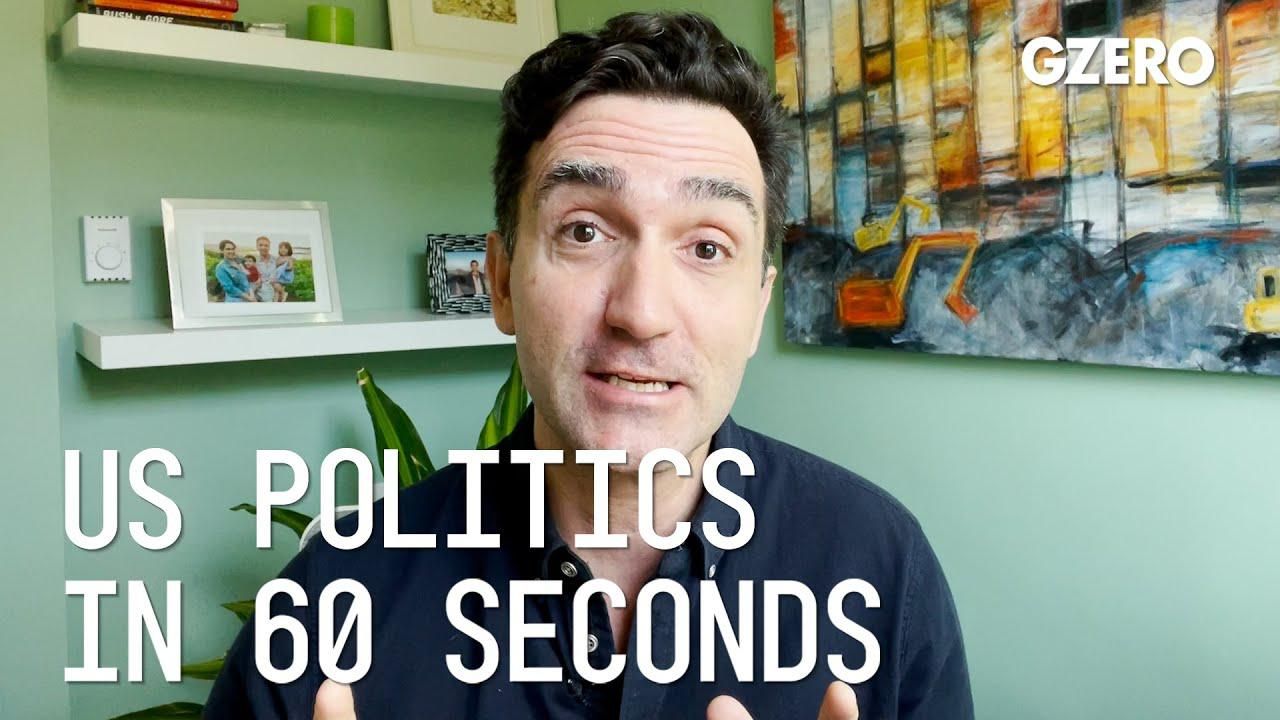US Politics In 60 Seconds
How do the US Capitol events impact the GOP, DC security & Biden policy?

How Do US Capitol Events Impact GOP, DC Security & Biden Policy? | US Politics In :60 | GZERO Media

Jon Lieber, who leads Eurasia Group's coverage of political and policy developments in Washington, offers insights on yesterday's turmoil at the US Capitol:
What we saw yesterday in the Capitol Building in Washington, D.C. was completely without precedent in United States political history. And just on a personal note, it was really upsetting to see people wandering around the halls of Congress and disrespecting the building. And fundamentally, this was a failure of policing at some level, and the Capitol Police will be expected to be held accountable for that in the coming weeks. And what you saw yesterday was not in any way equivalent to but is on the same spectrum as a lot of the same political protests that we've seen over the last couple of years, starting with the invasion of the Capitol complex during the Kavanaugh confirmations, and extending to the riots and protests that we saw over the summer, including the takeover of several blocks of downtown Seattle. This is obviously, what happened yesterday, far beyond the pale of any of those things. And it is no way their equivalent, but what all of this reflects is a failure of the democratic process to resolve differences in the United States. And that's a function of the deep polarization that you've seen, both because of geographic sorting, and atomization of the media that's allowing people to live in their own bubbles and give political figures strong incentives to disagree, as opposed to coming to agreements.
So, going forward Trump is clearly going to be very influential with a large base of the Republican party. And this MAGA group, concentrated largely in rural areas, can still help Republicans win the House of Representatives, and they may take a majority in the next election cycle in 2022, but it's going to be a growing problem at the statewide level. And in '22, you've got either incumbent Republicans or open seats in Ohio, Wisconsin, Pennsylvania, Florida, and North Carolina. And if those states vote anything like we saw in Georgia earlier this week, then it's clear that embracing Trump and MAGA is not enough to win statewide in those places. Now, Republicans won't lose all of those seats, but if Trump does decide to play in the primaries, it could cost them electorally going forward in the Senate, even as they take back the House. In 2024, for the presidential election, that's really a jump ball election. And the effects of the Trump base may fade by then. But if he's still an influential figure in the party, you're going to see members jockeying for the favor of that base, which moves the party in an increasingly populist and conservative direction.
So, for the next two weeks, I think physical security is going to be an incredibly important theme here in Washington, D.C. If I'm working in the Capitol complex right now, I'd be really worried about the ability of the Capitol Police to ensure the safety of the inauguration, which was already expected to be a physically distant inauguration because of the coronavirus. So, I think you're going to see an increasingly militarized presence here in D.C. Very, very few people allowed to even gather near the mall over the next two weeks. And the real wild card is President Trump. Does he decide to spend the next two weeks kind of beginning his retirement Mar-a-Lago? Or does the theater of getting thrown out of the White House on January 20th have too much of an appeal to his base who believes that the election was stolen from him? And you can't rule anything out right now, things that are beyond the pale or would have been previously imaginable sure seem like they're on the table. So, it'll be an eventful period with a lot of headline risk, but ultimately the policy impacts, I think of this are pretty limited. Democrats now have unified government, which means that there'll be able to accomplish a lot of on the fiscal front next year, increased spending on healthcare, energy policy, and stimulus, some of which will be paid for by tax increases. And the events of this week at the Capitol Building don't fundamentally impact that. And I also wouldn't expect to see a lot of new policy changes over the last two weeks of the Trump administration, as everybody just kind of prepares to move on.
Prime Minister Narendra Modi, with President of the European Council António Luís Santos da Costa, and President of the European Commission Ursula von der Leyen, at Hyderabad House, in New Delhi, India, on Jan. 27, 2026.
On Tuesday, the world’s largest single market and the world’s most populous country cinched a deal that will slash or reduce tariffs on the vast majority of the products they trade.
Canadian Prime Minister Mark Carney has repeatedly tussled with US President Donald Trump, whereas Mexican President Claudia Sheinbaum has tried to placate him. The discrepancy raises questions about the best way to approach the US leader.
10,000: The number of Hamas officers that the militant group reportedly wants to incorporate into the US-backed Palestinian administration for Gaza, in the form of a police force.
Walmart is investing $350 billion in US manufacturing. Over two-thirds of the products Walmart buys are made, grown, or assembled in America, like healthy dried fruit from The Ugly Co. The sustainable fruit is sourced directly from fourth-generation farmers in Farmersville, California, and delivered to your neighborhood Walmart shelves. Discover how Walmart's investment is supporting communities and fueling jobs across the nation.